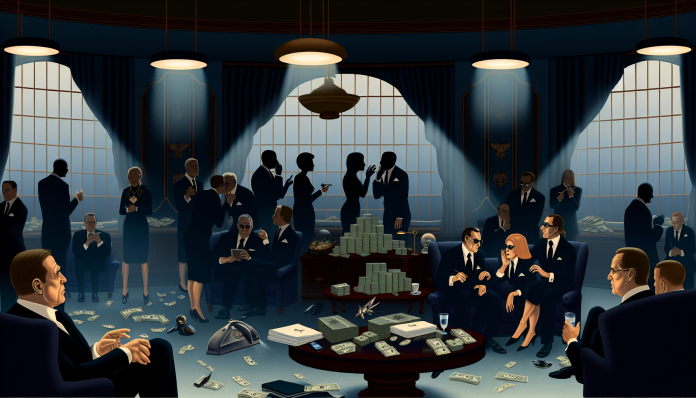Introduction
Henry Kissinger, the U.S. Secretary of State and National Security Advisor during the Nixon and Ford administrations, is often remembered for his significant role in global diplomacy—especially his involvement in Vietnam, China, and the Middle East. However, intertwined with his political legacy is a narrative of personal scandal, characterized by a string of alleged romantic entanglements that challenged the norms of the time. The 1970s was a period marked by shifting social mores, yet Kissinger operated in a high-stakes world where intrigue was as prevalent in personal lives as it was in political maneuverings.
The Scandal
Kissinger’s affairs, particularly with women in Washington’s elite social circles, became the subject of gossip in the political arena. One of the most notable relationships was with journalist Nan Robinson, who wrote about political affairs for various publications. Reports emerged suggesting that Kissinger’s romantic exploits often echoed the clandestine operations he was known for; that is, they were both strategic and shrouded in secrecy.
During a notably controversial trip to China in 1971, allegations arose that Kissinger had engaged in an affair with a beautiful American actress who had been invited to join on this diplomatic mission. Details remained murky, but the implication was clear: Kissinger, a figure of power, was entwined in scandal while attempting to forge international peace. The intertwining of personal and political pursuits drew sharp commentary from contemporary political journalists, like Judith Miller, who quipped, “He has mastered the art of diplomacy not just between nations, but between hearts.”
Prominent political figures of the day often navigated rumor and innuendo. Senator James Buckley remarked on the “ethical implications” of Kissinger’s conduct, arguing that personal morality inevitably intersected with public service. Despite the drummed-up tensions, Kissinger emerged unscathed politically. His pragmatic handling of international relations overshadowed the intimate affairs that circulated through the grapevine.
Moral and Cultural Analysis
The 1970s, while a time of sexual liberation in many regards, still operated under a set of expectations about behavior, especially for men in power. Public sentiment at the time revealed a complicated relationship with celebrity—a nuance that often blurred the line between respect for political leadership and the condemnation of personal conduct.
-
Contemporary Reactions:
- Gossip columns flourished, with scandals involving powerful men earning both scrutiny and fascination.
- Many dismissed the affairs as largely inconsequential, aligning personal exploits with the era’s emerging ethos of sexual freedom.
- Consequences:
- Kissinger faced little to no reprimand for his personal life; his foreign policy successes seemingly shielded him from backlash.
- Women involved in such scandals often faced public humiliation, revealing a stark double standard.
Fast forward to today, Kissinger’s affairs might provoke much harsher scrutiny. In an era marked by the #MeToo movement, there’s a heightened awareness of boundaries and power dynamics in romantic involvements. Modern values emphasize consent and equity, leading many to consider the implications of a powerful man using his status to engage in relationships with significantly less powerful individuals.
In this light, Kissinger’s affairs would likely invite a level of critique far more intense than in previous decades. The conversation around personal behavior, especially among figures of immense power, would evolve into a broader dialogue about the ethics of leadership and accountability.
In Summary:
The legacy of Henry Kissinger remains complex, interweaving monumental diplomatic achievements with intricate and sometimes scandalous personal affairs. The societal reactions to Kissinger’s dalliances reveal how attitudes toward power, sexuality, and morality shift over time—from speculation and gossip to indignation and calls for accountability.

